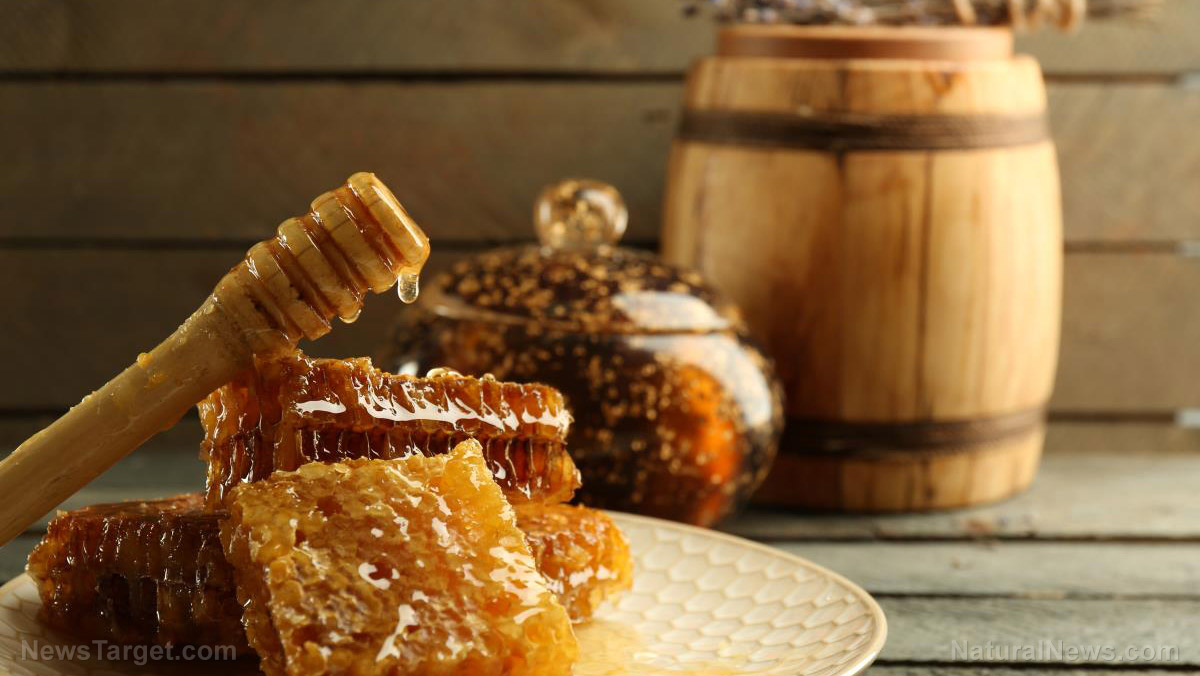Everything you need to know about manuka honey
07/04/2019 / By Vicki Batts

You may have heard of manuka honey, but what do you really know about it? This incredible superfood from New Zealand has gotten a lot of buzz, and for good reason. Manuka honey has many health benefits, and also boasts a variety of medicinal uses. While honey in general has received a lot of recognition for its various beneficial properties, manuka honey is unique in a number of ways.
One thing that makes manuka honey unique is its texture. While most honeys are liquid at room temperature, manuka honey has a spreadable, thick consistency and is made up of fine crystals. While manuka honey has about the same sugar content as regular honey, it is even more powerful against a variety of ailments and offers a number of special benefits.
Manuka honey health benefits and more
Manuka honey is a special type of honey that comes from New Zealand. It’s named after the manuka bush, which the bees use to gather pollen and nectar. From there, the magic of manuka honey truly begins.
While experts say that people who are allergic to bees should use honey with caution, for the average person, a little manuka honey can offer big benefits.
Aids wound healing
One of the most widely recognized benefits of manuka honey is its ability to promote wound healing. Even the FDA cannot deny the powerful healing properties of this stuff — and in 2007, the agency officially approved of manuka honey for wound healing treatments.
Frances Largeman-Roth, R.D., has studied manuka honey in-depth, and told Health, “Honey is very low in moisture content. When you put it on a wound, all the liquid in the wound gets drawn into the honey because it has the ability to absorb the moisture. By sucking up all the impurities, the honey protects the body against infection.”
According to Largeman-Roth, medical grade honey can also be applied topically to help restore skin’s normal pH and can also be used to help remove dead tissue. Manuka honey can be used to treat a variety of wounds, ranging from cuts to burns and even pressure ulcers.
Naturally antibiotic
As Largeman-Roth notes, all honey has some antibacterial properties. But while most honey gets this benefit from hydrogen peroxide, manuka honey relies on UMF — or “Unique Manuka Factor.” UMF is based on three compounds found naturally in manuka honey and is ranked on a scale of 5 to 20 and is used to gauge each honey crop’s antibacterial power.
The three compounds that make up UMF are leptisperin (nectar from the manuka bush), DHA (a fatty acid) and methylglyoxal (an antibacterial agent).
Other health benefits of manuka honey
Manuka honey has a wide variety of uses, largely thanks to its antibacterial activity and healing properties. As Healthline reports, there is a growing body of research indicating that manuka honey can be used to treat a number of ailments.
For example, research shows that manuka honey can be used to fight off harmful oral bacteria that cause tooth decay and sore throats. Some research has even show that manuka honey can even kill off bacteria associated with the onset of strep throat. Honey is also considered a natural cough suppressant.
In one study, using a manuka honey chew after meals three times a day was associated with a significant reduction in oral plaque and gum bleeds. Other research has suggested manuka honey can even help prevent cavities.
Healthline reports that manuka honey can also be consumed to promote digestive health. In addition to preventing gastric ulcers, research shows that manuka honey can help reduce inflammation in the gut in people with IBS and irritable bowel diseases like ulcerative colitis.
Used topically, manuka honey can also help improve the health of your skin and fight acne. This is attributed to the antioxidant activity of manuka honey, as well as its antimicrobial and healing properties.
You can learn more about manuka honey and other healing foods at NaturalMedicine.news.
Sources for this article include:
Submit a correction >>
Tagged Under:
This article may contain statements that reflect the opinion of the author
RECENT NEWS & ARTICLES
COPYRIGHT © 2017 SUPER FOODS NEWS





















